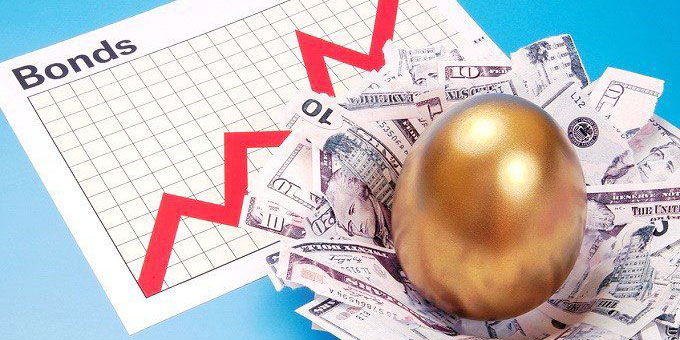Top Investment Corporate Bonds EFTs
Triston Martin
Dec 02, 2023
When it comes to investing, ETFs aren't only for stocks. Fixed-income assets are the only focus of bond exchange-traded funds. Investment grade corporate bond exchange-traded funds (ETFs) invest in the greater quality debt of economically stable and robust corporations, giving investors access to comparatively small risk corporate bonds. Firms like Verizon Inc., Goldman Sachs Inc., as well as Wells Fargo & Co ltd. are illustrations of the types of firms whose bonds are featured in these ETFs. Companies with such excellent credit scores are unlikely to fail. That's why these exchange-traded funds might be a great buffer for your portfolio.
There are sixty different exchange-traded funds (ETFs) that trade investment-grade corporate bonds in the U.S. This number does not include inverse or leveraged ETFs, nor does it include funds with far less than fifty million dollars in assets under management (AUM). As of February 10, 2022, the S&P 500 had a total return of 16.6 percent over the preceding 12 months, while the Bloomberg U.S. Commercial Bond Index, which measures investment-grade corporate bonds, had a total return of -5.2%. Based on its performance over the course of the previous year, the Invesco BulletShares ETF is expected to be the exchange-traded fund (ETF) with the highest return on investment for the second half of 2022. (BSCN). In this article, we take a look at the top three investment-grade commercial bond exchange-traded funds.
What Is An ETF For Bonds?
A bond exchange-traded fund is a kind of mutual fund that invests in bonds issued by the federal government, state and local governments, or large corporations. As bonds are essentially debt that accrues interest until it is repaid, a bond exchange-traded fund (ETF) is created when a fund's underlying asset is the debt of various kinds. As a consequence, Treasury bond ETFs are a safer choice during economic downturns than the S&P 500.
There is a wide range of bond kinds, each with its own risk profile, interest rate potential, and time to maturity, expressed in terms of if the bond is "short" and therefore will bloom soon or "long" and will require years or even decades to pay out. Government-issued debt has the least amount of risk, whereas bonds issued by companies with lower credit ratings have a far higher level of risk. Both the market volatility and the greater likelihood of default by corporations make investing in corporate bonds riskier than investing in government bonds. High-yield corporate debt is the most dangerous bond for those with a high-risk tolerance.
Treasury Bond ETF
U.S. Treasury bonds are debt obligations of the federal government that pay interest to investors. Treasury bonds have a reputation for being the safest investment option due to the certainty with which their principal value will be returned to the buyer after a term of ten to thirty years. Given that treasury bond ETFs are backed by U.S. treasuries, they are among the most secure financial products available.
Corporate Bond ETF

Among ETFs, a corporate bond fund represents the most high-risk end of the market. Corporate bond funds include as their underlying asset several types of debt, involving commercial debt like mortgages or individual college loans, as well as an existing debt owing by the firm itself. Bonds issued by private companies or other entities are considered corporate bonds. It is the additional credit risk that makes investing in corporate bond funds so risky.
Nonetheless, there is a wide range of riskiness associated with various forms of corporate debt. The term "investment grade" is used to describe the highest quality corporate bonds, whereas the term "non-investment grade" or "junk" is used to describe the lowest quality. To be clear, "junk bonds" are a slang term for the riskier instruments that are crafted from high-interest corporate loans. All corporate bonds have maturities between one and thirty years. However, the phrase "commercial paper" is used to describe the majority of corporations' short-term debt.
Municipal Bond ETF
Investing in municipal bond exchange-traded funds, sometimes known as "munis," is a good middle ground between the safety of treasury bond ETFs and the excitement of more adventurous bond investments. While municipal bonds are somewhat more volatile than treasury bonds due to their backing by regional government debt, they are far more secure than corporate debt due to their common repayment through state & local taxes. One of the munis' greatest advantages is that they are the only debt-backed assets exempt from federal income tax.
ETFs that invest in municipal bonds are essentially pools of debt issued by cities, counties, and states that may be traded on financial markets. These bonds are intended to finance public projects like playgrounds, schools, and highways. MLN, which invests in long-term municipal debt, and SMB, which invests in short-term municipal debt, are two of VanEck's best muni ETFs. VTEB is a top pick since it is able to trade tax-exempt bonds at a low-cost ratio of 0.06%.
Top Investment Corporate Bonds ETFs
Investment Grade Corporate Bond Index Fund (Invesco Bulletshares)
To evaluate the progress of a diversified portfolio of investment-grade corporate bonds issued in U.S. dollars and having maturities or effective deadlines in 2023, NSCN monitors the Nasdaq Bulletshares Corporate Bond. Using a "sampling" approach, the fund will hold at least 80 percent of the corporate bonds included in the index. The portfolio is mostly composed of corporate bonds issued by financial institutions, healthcare providers, and enterprises in the discretionary spending sector. When the maturity date of a BulletShares fund is reached, unlike most other mutual funds, it returns the investor's initial investment in the fund. Top assets of NSCN include bonds from aerospace giant Boeing Co., significant financial services provider Bank of America Corporation, and computer, smartphone gear, and service provider Apple Inc.
iShares iBonds
IBDN follows Bloomberg's Dec 2022 Business Index. Corporate bonds issued in the United States with an investment grade rating and expiring between January 1, 2022, and December 15, 2022, are included in the index. Bank bonds account for about 27 percent of IBDN's portfolio, with bonds issued by consumer non-cyclical companies making up the second biggest holding. Wells Fargo & Company bonds, a monetary services firm, Oracle Corp. bonds, a programming and computer engineering firm, and AbbVie Inc. bonds, a biopharmaceutical corporation, are among IBDN's top holdings.
iShares Inflation Hedged EFT

LQDH follows the BlackRock Corporate Bond Indicator. This index is meant to reduce the risk of rising prices in an investment of investment-grade corporate bonds priced in dollars. LQDH's holdings consist of 93.5 percent of the iShares iBoxx Corporate Bond ETF and 6.5 percent of inflation swap positions, both of which contribute to the portfolio's ability to implement the strategy's underlying assumption of price stability. Bonds issued by financial institutions, non-cyclical retailers, and communication providers make up the bulk of LQDH's holdings through its LQD investment. Over 27.3% of the bond portfolio is invested in bonds having more than twenty years to maturity. For diversification purposes, LQDH invests in the iShares iBoxx $ Corporate Bond ETF rather than holding individual corporate bonds.







